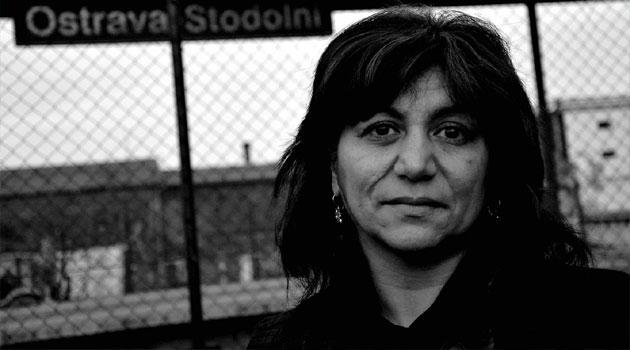Who
will be chosen as the greatest hero fighting injustice, unfair treatment and
wrongs in the Czech Republic? Cast your vote in the survey “Anyone Can Be a
Hero” (Hrdinou může být každý) at hrdinou.cz.
Below news server Romea.cz presents the story of nominee Elena Gorolová.
Elena Gorolová: Illegal sterilization
Elena
Gorolová (age 43) has two sons. She loves them more than anything, but she
wishes she could have had a little girl too. For more than 20 years she has
been living with the fact that she cannot have any more children because she was sterilized without her informed choice or
consent during the
delivery of her second child. She is not the first woman to whom this has happened, but she is the
first to take a public stand against it in the Czech Republic.
“I believed the doctor”
Elena
gave birth twice by Caesarian section. During her second delivery there were
complications. “I was removed from the delivery room to an operating room. I
was lying there in great pain and a doctor came to me with a paper for me to
sign because otherwise I might die,” she remembers.
Elena was not able to
reflect under the circumstances and the word “sterilization” meant nothing to
her, but she believed the doctor knew what he was doing. She signed the paper.
The
supervising physician came to see her after the delivery and she immediately
asked him what had been done to her. “He told me straight out that I would
never be able to have children again and then he left,” she says with tears in
her eyes.
Elena
was in shock: “I remember how long I
kept going over it in my head, asking if it was seriously the truth.” As soon
as she got home, a midwife visited her and explained everything. “I learned
that it was 100 % certain. I felt inferior.”
“I
want everyone to know this”
Years later, while
watching television, Elena learned about a local group of women who had all
been sterilized without their informed choice or consent and went to take a
look at what they were doing. “I wasn’t working back then, so I had a lot of
time, and I wanted to start doing something,” she says. Elena started regularly
attending the group, organizing meetings and demonstrations, and doing her best
to publicize the whole problem.
“When
the others in the group discovered how active I was and that I was doing my
best to get this problem before the public, they told me they would be glad if
I would be their press spokesperson,” Elena says. She was glad to agree to the
offer, as many of the other women did not want to show their faces on camera.
Elena
has never been bothered by the toll of publicity. “I want everyone to know about this,”
she says.
Not
just Romani women
Elena
Gorolová and other women filed complaints with the Czech ombudsman. “There were a total of 80 complaints and about
50 of them were recognized as justified,” she clarifies. None of the women had
been provided enough time between the moment they had been "informed" about the
option of sterilization and the moment they signed their consent to the
operation, which meant their “consent” was not sufficiently informed and therefore invalid.
All
of the complaints filed with the ombudsman were from Romani women, but shortly
thereafter, non-Romani women started contacting Elena as well. “They told me
they wanted to support us, but when they found out the other women
in the group were Romani, they refused to come to our meetings,” Elena says.
None of them have reportedly ever filed complaints.
The
Government has apologized to us
The
women turned to the Czech Government with their complaints as well. “We kept
submitting things and they kept being swept under the carpet. The change came
about with [Czech Human Rights and Minorities Minister] Kocáb, and we were told
that they would be apologizing to us,” Elena said.
So
far only two women who filed charges and whose cases were eventually
deemed admissible by the European Court of Human Rights in Strasbourg have
received compensation from the government. “I would also have liked to have filed
charges, but there wasn’t enough financing for it,” Elena says.
“They
say I’m just doing this for money”
The
group has started to become famous abroad. Elena has been visited by
journalists and people from other nonprofit organizations, not just at the
group’s meeting space, but even in her home. Through a colleague she even
attended a UN conference in New York addressing racial discrimination against
women.
Her
fight has not been easy. “I have often encountered the opinion that I am doing
this only for money. That has even been said inside our community. People
around me started to envy me my work, the fact that I was traveling lots of
places or that I was on television a lot,” Elena says.
Elena
is glad that she has persisted and that despite these negative responses, there
are have also been some results. “Involuntary sterilizations aren’t happening here
anymore, which I am very pleased about, but there is still a need to improve
the legislation on this issue. I can only hope to get lucky and at least have a
granddaughter someday.”
